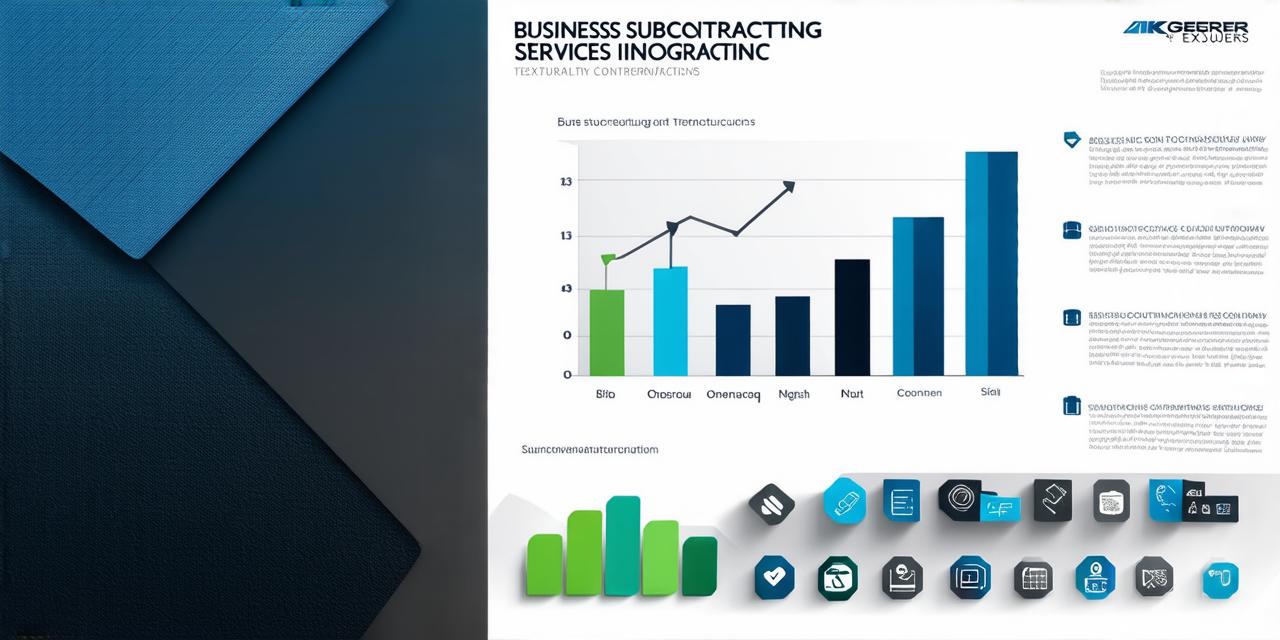What is Business Subcontracting?
Subcontracting refers to the practice of outsourcing work that would typically be done in-house to a third-party vendor. This can include anything from accounting and bookkeeping to marketing and advertising, or even manufacturing and logistics. The goal of subcontracting is to delegate tasks to experts who have more specialized knowledge and experience, which can help free up your time and resources to focus on other areas of your business.
Why Choose Business Subcontracting Services?
There are many reasons why businesses turn to subcontracting services. Here are some of the most compelling:
-
Cost Savings: One of the biggest advantages of subcontracting is the potential for cost savings. By outsourcing work to a third-party vendor, you can take advantage of their expertise and experience, which can often lead to more efficient and cost-effective solutions.
-
Expertise: Subcontracting services can provide you with access to highly skilled professionals who have specialized knowledge and experience in their field. This can be especially valuable for smaller businesses that may not have the resources or expertise to hire in-house employees with these skills.
-
Scalability: Subcontracting services can also help businesses scale more effectively. For example, if your business is growing rapidly and you need to increase production, you can hire a subcontractor to handle the additional workload. This allows you to focus on other aspects of your business without being bogged down by operational challenges.
-
Flexibility: Subcontracting services can provide businesses with greater flexibility in terms of staffing and resources. For example, if you need help with a specific project or task, you can hire a subcontractor on a temporary basis to handle that workload. This allows you to scale up or down as needed, without having to commit to hiring additional employees long-term.
Real-Life Examples of Business Subcontracting Services in Action
To better understand the advantages of business subcontracting services, let’s look at some real-life examples:
-
Marketing and Advertising: Many businesses turn to subcontractors for marketing and advertising services. For example, a small business may hire a marketing agency to develop and execute a social media campaign or create an email marketing campaign. This allows the business to take advantage of the agency’s expertise and resources, without having to invest in expensive software or technology.
-
Accounting and Bookkeeping: Another area where subcontractors can be particularly helpful is in accounting and bookkeeping. For example, a small business may hire a bookkeeper to manage its financial records and help with tax preparation. This can save the business time and resources, while also ensuring that its financial records are accurate and up-to-date.
-
Manufacturing and Logistics: Finally, subcontracting services can be particularly valuable in manufacturing and logistics. For example, a small business may hire a manufacturer to produce a specific product or component, allowing it to focus on other aspects of its business. Similarly, a business that needs help with shipping and logistics may hire a third-party vendor to handle those tasks.
FAQs About Business Subcontracting Services
1. What types of businesses can benefit from subcontracting services?
Answer: Any type of business can benefit from subcontracting services, regardless of its size or industry. However, smaller businesses may be more likely to turn to subcontractors because they may not have the resources or expertise to handle certain tasks in-house.
2. How do I find the right subcontractor for my business?
Answer: To find the right subcontractor, it’s important to research and compare different options. Look for vendors who have experience in your specific industry or area of need, and who can provide you with references and case studies. It’s also a good idea to ask for quotes from multiple vendors to ensure that you’re getting the best possible value.
3. What are the risks associated with subcontracting?
Answer: While there are many benefits to subcontracting, there are also some risks to be aware of. For example, subcontractors may not always meet your expectations, or they may have their own agendas that conflict with your business goals. To mitigate these risks, it’s important to carefully vet potential vendors and establish clear communication and expectations from the outset.
Conclusion: The Advantages of Business Subcontracting Services
In conclusion, subcontracting services can provide businesses with a range of benefits, including cost savings, expert knowledge and experience, scalability, and flexibility. By delegating tasks to third-party vendors, businesses can free up their time and resources to focus on other areas of their operations, while still ensuring that critical tasks are being handled efficiently and effectively.

